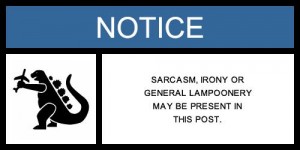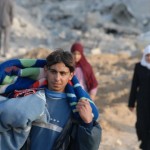UPDATED Iran: Rafsanjani Makes A Public Move with "Friendship Principles"UPDATED Iran: How a Non-Story about a Non-Jew Became Media Non-SenseVideo: 4 Clips from Tehran Azad University Protests (6 October)The Latest from Iran (6 October): Loud Noises, Quiet ManoeuvresReceive our latest updates by email or RSS SUBSCRIBE TO OUR FEEDBuy Us A Cup of Coffee? Help Enduring America Expand Its Coverage and Analysis2
2130 GMT: A very depressing end to the day. The Committee on Human Rights Reporters has announced that Mohammad Reza Ali Zamani, a member of the The Association of Monarchists, is
to be executed by hanging for taking part in the demonstrations following the June elections. Zamani, who had no access to independent legal representation, was transferred on Monday from Section 29 of Evin Prison to Branch 15 of the Revolutionary Courts and his sentence was handed down by Judge Salavati.
To our knowledge, this is the first death sentence for a partipicant in post-election protest.
(http://chrr.us/spip.php?article6138)
1800 GMT:
Disturbing article in Payvand that 10 of the 21 members of the "press court jury" have been replaced in elections. Out go Fatemeh Karoubi, wife of Etemade Melli party head Mehdi Karoubi, Masih Mohajeri, editor-in-chief of
Jomhouri Eslami newspaper, and cleric Mohsen Doagu, all of whom have been critical of the Ahmadinejad administration. The news accompanies the closure of three more newspapers since Sunday.
1715 GMT: Report that 12 members of the Iran Teachers Union who were arrested on Tuesday (the day after World Teachers Day)
have been released from detention.
1530 GMT: Let's Keep It Global, OK? Sure looks like Mahmoud Ahmadinejad wants to talk about matters other than domestic trifles. He
appeared on Iran state television after a Cabinet meeting to confirm Tehran's willingness to consider "third-party enrichment" of its uranium, adding:
I think these negotiations were a step forward and I hope we proceed with the same trend so we will have constructive cooperation to resolve all outstanding global issues....In these negotiations we witnessed better behaviour than in the past from some countries and we noticed that the logic of respect and justice is being established gradually. These talks are good basis for continuation of the negotiations.
1319 GMT: Prompted by readers, we're investigating the story that the Obama Administration has cut funding to four Iran-centred human rights organisations. The only article so far,
in Boston.com, considers
the Iran Human Rights Documentation Center. The three other groups are not identified.
1315 GMT: Fereshteh Ghazi ("Iranbaan")
has updated on the condition of a number of detainees, including the two of 18 students who were not released after University protests last week.
1105 GMT: And Now A Distraction. Press TV summarises
the Supreme Leader's public address in the northern city of Chalous:
The enemy started to throw mud and spread rumors in order to undermine and downplay this big political victory....The enemy caused unrest in a part of the country. We see that it is worried about the 85 percent participation of the Iranian nation in the presidential election....Iran's foes are angry with progress and development of the nation.
And so on and so on....
0915 GMT: OK, So We Did Talk. Aladdin Boroujerdi, the Head of Parliament's National Security and Foreign Policy Commission, has messed up the Government's "Maybe We Did, Maybe We Didn't" strategy by confirming that
Iranian and American delegates did have bilateral discussions at the Geneva meeting on Iran's nuclear programme. Saeed Jalili, the lead Iranian negotiator, had denied that any 1-on-1 conversation took place.
0820 GMT: One source for the claim that Saeed Mortazavi is on the firing line for the Parliamentary report on post-election abuses (see 0740 GMT) is member of Parliament Ali Reza Zakani, who claims that
documents will soon be produced for judicial authorities establishing Mortazavi's guilt.
0810 GMT: Ayatollah Dastgheib
has written another letter criticising the handling of the post-election crisis, alleging that "military men" are the cause of "vices" in Iran.
0755 GMT: Is This A Confession of Fraud or An Attack on Larijani? In an interview, conservative member of Parliament
Javad Karimi Ghadousi claims that Speaker of Parliament Ali Larijani wants a National Unity Government so that he can replace Mahmoud Ahmadinejad as President. Ghadousi criticises Larijani for investigations of post election events, such as the raids on Tehran University dormitories and the abuses at Kahrizak Prison, "in defiance" of the Supreme Leader's statement that these were "side issues".
This, however, is the headline assertion: Larijani called Mir Hossein Mousavi on the night of the Presidential election to congratulate him on victory, and Deputy Speaker Mohammad Reza Bahonar wrote a letter to Ayatollah Khamenei that the regime has to accept and prepare for Mousavi as President.
0745 GMT: Back in Action (with a Great Headline). It looks like Mehdi Karroubi's Web presence has returned, with the repackaging of
Tagheer on a different URL. It criticises proposed First Vice President Rahimi (see yesterday and 0530 GMT) with
one of the best lines in the post-election crisis: "Fake Correspondence of Fake Minister in Fraudulent Government".
0740 GMT:
News is coming out of the Iranian Parliament that while parts of the report on post-election abuses are classified, it does criticise --- as rumoured --- former Tehran Prosecutor General (now Iran Deputy Prosecutor General) Saeed Mortazavi and Tehran police chief Ahmad Reza Radan.
0550 GMT: Nothing to See Here. Not a word on Press TV's website about the internal political dynamics. Instead it
goes for Iran in the World, with "the [Supreme] Leader...has said Iran's military advances are no a threat to any nation but instead are helping them progress 'without dependence' on the US."
Nothing in Fars News' headlines either; however, the Islamic Republic News Agency
does feature a critique of "the archaeology of Hashemi Rafsanjani's National Unity Plan". The analyst, Mohammad Sajjad Nosrati, begins with an invocation of "the discourse of [French philosopher/sociologist] Michel Foucault" (somehow I can't see the same approach being applied to Barack Obama's health care plan in the US) before asserting that the Plan was put forth a few months
before the Presidential election.
0530 GMT: After days of fencing and manoeuvring for position, we
may see some interesting developments inside and around the Majlis today, as a Parliamentary committee is scheduled to present its report on post-election abuses.
Tensions between the President and conservative/principlist groups have been re-emerging, with hints that condemnation of episodes such as the crimes in Kahrizak Prison may have to name some names, pressing the Ahmadinejad Government to take the reprimand and offer up a scapegoat. That has been accompanied by a renewal of discontent over the President's choice of allies and cronies, with whispers becoming public grumbles about selections such as the First Vice President Mohammad Reza Rahimi. And one should not overlook that the headline, "Supreme Leader Reshuffles Top Positions" at the Islamic Revolution Guard Corps and Basiji headquarters, sits on top of a continuing battle between the President and others to control the Ministry of Intelligence.
Still, the key word in the opening sentence above is "may". The Parliamentary report has already been delayed, and conservative/principlist critics may decide once again to put aside their differences with Ahmadinejad. For what we have yet to see in this crisis is a conservative/principlist decision to set aside their basic opposition to "reformists", allying with them at least temporarily to force changes from Ahmadinejad and the security forces.
And that in turn takes us to the heart of the confusion and tension over the "National Unity Plans", whether that is one Plan, two rival Plans, or even more. With a lot of attention on Hashemi Rafsanjani, the question has not been answered: is there any plan which has finally brought agreement between conservative/principlist groups and reformists to work together in a committee to bring signficant changes?
 Thursday, October 8, 2009 at 11:17
Thursday, October 8, 2009 at 11:17  Our colleague Ali Fisher, who writes the excellent blog Wandren PD on public diplomacy and new media, has unveiled the first results from his study of the interaction of Twitter users with post-election protest in Iran. Writing for the USC Center on Public Diplomacy, he has mapped the conversation around the tags #GR88, #FreeIran, #Neda, and #Sohrab as well as the tag #helpiranelection (which I did not know about and was apparently created by a software developer in Israel).
Our colleague Ali Fisher, who writes the excellent blog Wandren PD on public diplomacy and new media, has unveiled the first results from his study of the interaction of Twitter users with post-election protest in Iran. Writing for the USC Center on Public Diplomacy, he has mapped the conversation around the tags #GR88, #FreeIran, #Neda, and #Sohrab as well as the tag #helpiranelection (which I did not know about and was apparently created by a software developer in Israel). Our colleague Ali Fisher, who writes the excellent blog Wandren PD on public diplomacy and new media, has unveiled the first results from his study of the interaction of Twitter users with post-election protest in Iran. Writing for the USC Center on Public Diplomacy, he has mapped the conversation around the tags #GR88, #FreeIran, #Neda, and #Sohrab as well as the tag #helpiranelection (which I did not know about and was apparently created by a software developer in Israel).
Our colleague Ali Fisher, who writes the excellent blog Wandren PD on public diplomacy and new media, has unveiled the first results from his study of the interaction of Twitter users with post-election protest in Iran. Writing for the USC Center on Public Diplomacy, he has mapped the conversation around the tags #GR88, #FreeIran, #Neda, and #Sohrab as well as the tag #helpiranelection (which I did not know about and was apparently created by a software developer in Israel). Ali Fisher,
Ali Fisher,  Iran,
Iran,  Iran Elections 2009,
Iran Elections 2009,  Twitter,
Twitter,  Wandren PD in
Wandren PD in  Middle East & Iran
Middle East & Iran  Ali Fisher,
Ali Fisher,  Iran,
Iran,  Iran Elections 2009,
Iran Elections 2009,  Twitter,
Twitter,  Wandren PD in
Wandren PD in  Middle East & Iran
Middle East & Iran 
 We avoided the media flutter last month over
We avoided the media flutter last month over 
 The Goldstone Report on the Gaza War is no longer a set of findings on possible crimes by both sides during the fighting. So, an enquiry that was supposed to cast bring light on the bombed rubbleis now a political tool to be wielded against the "enemy". And that is not only the "enemy" in the Israel-Palestine conflict but also within Palestinian politics.
The Goldstone Report on the Gaza War is no longer a set of findings on possible crimes by both sides during the fighting. So, an enquiry that was supposed to cast bring light on the bombed rubbleis now a political tool to be wielded against the "enemy". And that is not only the "enemy" in the Israel-Palestine conflict but also within Palestinian politics. Returning Syrian President Bashar Assad's visit to Saudi Arabia,
Returning Syrian President Bashar Assad's visit to Saudi Arabia,  2130 GMT: A very depressing end to the day. The Committee on Human Rights Reporters has announced that Mohammad Reza Ali Zamani, a member of the The Association of Monarchists, is
2130 GMT: A very depressing end to the day. The Committee on Human Rights Reporters has announced that Mohammad Reza Ali Zamani, a member of the The Association of Monarchists, is